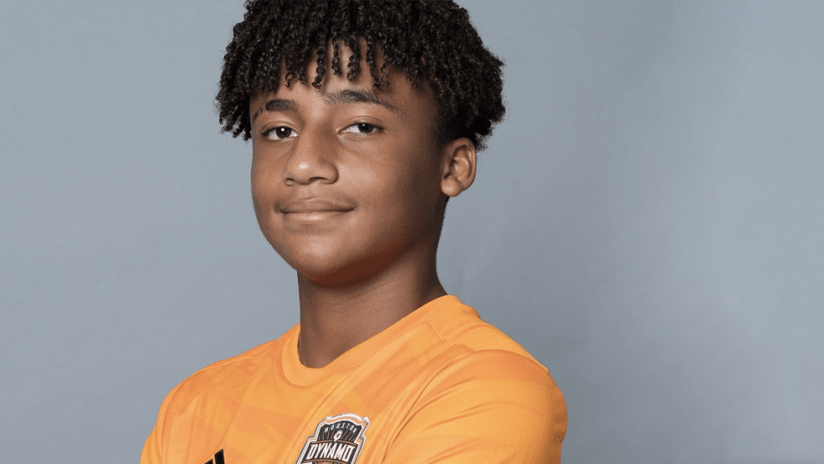The lifestyle of an elite soccer player can be daunting for an average person to behold. Organization, discipline and resilience are typically essential skills from an early age, given the high standards of ability, fitness, nutrition and intelligence required at the game’s top levels.
Jordan Morris had to master all that even earlier than most.
That’s because the Seattle Sounders’ Homegrown star was diagnosed with Type 1 diabetes at age 9.
“It is tougher – if your blood sugar is not in the right range, it can be tough to play,” Morris tells MLSsoccer.com in a conversation about his condition and its effect on his soccer career ahead of last month's World Diabetes Day. “But I think getting it at such a young age, I had to learn how to work hard and take care of something.
“That was the first question my mom asked [Morris’ doctor] – ‘can he still play sports?’ And he said the more, the better. At a young age, having to get out and exercise a lot and really watch what you eat, it’s stuff that you have to do to become a professional athlete. And I think being able to start that at a young age maybe helped me get to where I am.”
By now, the story of his lifelong management of T1D is well-known to Sounders supporters. His mother and father – a nurse and a doctor, respectively – have recounted how on the way home from that fateful diagnosis, the young Morris worriedly asked them when he was going to die, assuming that a condition called “die-abetes” involved a premature passing.
Many would consider it a cross to bear. With their natural production of insulin impaired, T1D patients must carefully monitor their blood-sugar levels at all times. They risk organ and nerve damage, impaired vision and even death if the bloodstream runs too high or low on glucose.
But for Morris, T1D cultivated an innate self-awareness that would help him climb the ranks from youth soccer talent to NCAA, MLS and US national team standout.
“I’ve had a couple of other athletes who are diabetics, and each one of them has an unbelievable sense of their body, because they have to from when they’re a kid,” former Sounders sports science chief Dave Tenney told The Seattle Times last year. “Whatever Jordan says, I trust him, because I know what he’s been through and that he’s learned to listen to his body better than the average [23]-year-old.”
Growing up, Morris had to build a habit of constant blood-sugar checks, a handheld tester poking his fingers as often as seven times a day to make sure he was in balance (today he benefits from modern technology, wearing a device called a continuous glucose monitor on his hip that sends readings to his phone every five minutes).
He learned what foods worked best before practices and games – peanut butter on toast, yogurt and fruit are familiar standbys. Or when he needed to run to the sideline for a quick bite of the gummy snacks he keeps close at hand if his blood sugar dips.
“I try to eat the same thing before every day, especially before training just because I know how it’s going to affect me,” he says. “That’s been kind of a process over my whole life, trying to figure out the right things to eat.

“So that’s kind of the daily routine. The tough part is that it’s a 24/7 job, you always have to be on top of it.”
All that diligence laid a foundation for future success, especially once he learned that his condition would not prevent him from chasing his dreams.
“When I was first diagnosed, one of my best friends’ dads brought in a list of professional athletes that had diabetes,” recalls Morris, “because I knew I wanted to be a professional athlete and he said ‘look, if they can do it, you can do it.’ And from that day, I set my mind that I wasn’t going to let it hold me back.”
Now Morris works to inspire younger generations the same way. He’s already met and mentored many “diabuddies” in Washington state and across the country since turning pro last year, and n October he established his own foundation, expanding his efforts to “educate, inspire and support” children with Type 1 diabetes and their parents.
Morris’ “Playmakers” program gives newly-diagnosed T1D kids a chance to spend time him on the pitch at CenturyLink Field after Sounders home games to experience what he and his teammates do. He hopes to expand the program to away games as well.
Morris also visits area children’s hospitals and holds informal gatherings with families to share information and perspective on their road ahead, one that he’s traveled himself. Future plans include a series of soccer camps for young diabetics. His efforts earned him the Sounders' Humanitarian of the Year award for a second straight season.
“I had those role models, but I was never able to actually talk to someone, and for me that’s been my purpose, to get out there and talk to these kids,” he explains. “It’s just a way for me to reach out as many special kids as possible and let them know that it’s going to be OK.”












